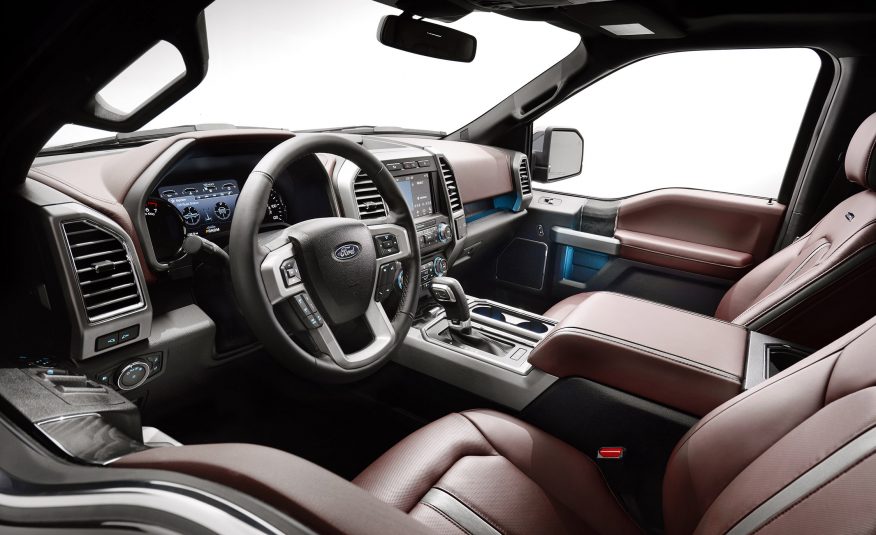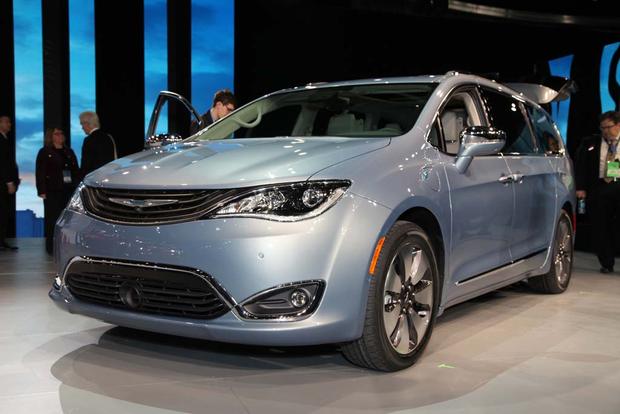-
2018 Buick Enclave “Avenir” will have ionic air purifier - April 12, 2017
-
Lease a Luxury Car for Less Than You Think - April 5, 2017
-
Shopping for a Car When Your Credit is Low - March 31, 2017
-
Aston Martin Closer to Unveiling Second-Generation Vantage - March 21, 2017
-
2017 Bentley Bentayga SUV: Offroad for $238,000 and Up - March 14, 2017
-
Pagani Huayra is Finally Here, Only $2.4M - March 9, 2017
-
Mercedes AMG E63 – For When Your Wagon Needs Drift - February 6, 2017
-
2018 Audi Q5 SUV: Enhanced Performance - January 30, 2017
-
2018 Toyota Camry Due in Late Summer - January 27, 2017
-
2018 Dodge Challenger SRT Demon Will Outstrip Hellcat - January 23, 2017
Income Verification – Why You Need to Prove Your Pay to the Auto Loan Lender
If you can’t prove that you can make the auto loan payments, you will have a hard time getting approved to buy a car. This is where income verification comes into play. In the car loan approval process, it is one of the most important factors lenders look at, especially in this economy.
"In the past, if you had a decent credit score, you didn’t need income verification," says Tony Dupaquier, Director of F&I Training for American Financial & Automotive Services, Inc. "They would just do the loan, no questions asked."
"Starting June 2008 and all of 2009, the best buyers started losing jobs and having their income reduced. Lenders became reactionary based off of the market, and they started seeing delinquencies and repossessions. Now, they want to see verification of income on everybody, to make sure that you have not only accurate information for the lender, but also so they can look at the payment-to-income ratio more closely and limit the vehicle (loan amount) if needed."
Because many Americans who were the best credit risk for lenders in the past now have lost their jobs or have seen their income reduced, their credit scores may have taken a hit, meaning they won’t appear to be a very good risk to the lender, like they were in the past.

Dupaquier, a 20-year retail automotive industry veteran, says there are a couple things buyers need to realize right now in this economy if they want to be considered a good risk for an auto loan lender.
- No matter what your income or credit score is, it is highly recommended that you have 20 percent minimum for a down payment for a car loan. The lender wants to see cash from the individual. You can’t use rebates toward the down payment any more either. You may need 20 percent for a down payment on top of any rebates or incentives.
- Be more conservative in your vehicle selection. Extra options make the deal more unreasonable. You really don’t need a sunroof or leather interior, especially if you have no money to put down. The lender will wonder if you can actually make the payments.
- You have a better chance of getting a car loan on a new vehicle, compared to a used vehicle. The factory lenders like GMAC, Ford, Nissan, Toyota, etc. are wanting to sell new vehicles. A customer willing to purchase a new GM vehicle has a better chance of securing a loan with GMAC, then if the same customer was wanting to purchase a used Ford, from a dealership who utilizes GMAC.
- Lenders are looking at credit scores across the board. If you have negative marks on your credit and you want to buy a high-end luxury vehicle, you may need at least 20 percent down, if not more.
Types of Income
Automotive lenders look only at your gross income, or the amount you make before any taxes are taken out and any deductions are made, Dupaquier says. The most common types of income are salary, hourly, commission, bonus and cash.
If you earn cash as part or all of your income, it can be much harder to prove how much money you make to a lender. Bank statements will be looked at by automotive lenders if you fall into this category.
"You have to take that money and put it in the bank," Dupaquier says. "You have to show deposits and consistency. You can pull the money right back out, but you need to show the deposits."
"You need a checking account because it shows stability and responsibility. If you pay your bills with money orders, it won’t look good. A savings account is also good, even if there’s only $50 in it."
For consumers who get paid salary or hourly, they simply need to bring their most recent pay stub or W2 to the dealership with them when they go car shopping, he explains.
Car shoppers can also get approved for an auto loan if they do non-traditional jobs, as long as they can prove their income.
"We had a man who applied for a car loan and his application said ‘eBay power seller’ as his job," says Dupaquier, who runs finance schools for business managers at dealerships. "He provided the lender 12 months worth of Pay Pal statements. He also gave them several months of bank statements with weekly deposits, and was approved. A lot of people are doing stuff like eBay and Craigslist and making a lot of money."
If you receive government assistance, you can also use that money as income toward your auto loan payments.
"All of the lenders will take public assistance, like disability, social security and even food stamps," Dupaquier says. "It’s not like you can use the food stamps toward your car payment, but you can use it for your food, and it is verifiable, guaranteed income. Once you get public assistance, it’s tough to lose."
With so many Americans receiving unemployment benefit checks, they may think these can be considered income toward a car loan payment. Generally, these won’t be considered as income, since they are only temporary, he explains.
"Some lenders have accepted it from a spouse, but they’ll want to know why they aren’t working," Dupaquier says. "It falls under the ‘not working’ category, like a housewife."
If you’re married, and your income is low, you can combine the income of both spouses to get approved for the auto loan.
"But the spouse also has to be on the loan," Dupaquier says. "Different lenders look at it different ways. The term ‘co-signer’ doesn’t exist anymore. They’re all joint applications now, which gives both people equal responsibility. There are a few tiny exceptions. GMAC has looked at annual household income, but individual income is more important."
Car shoppers constantly want to know not only what minimum credit score they need but also how much money they need to make monthly to get approved for a car loan.
"Most lenders have minimums," Dupaquier says. "The average is $1,200 to $1,600 gross minimum. If you make less, you need a special circumstance to be considered. For example, if you make $900 a month and put 50 percent down and you’re not relying on that income to live, you may get approved."
Types of Employment
Lenders are looking not only at how much money you make, but what you do to earn that money.
"If you work in a turbulent job and want to buy an expensive vehicle, you are going to need a high down payment," Dupaquier says.
For example, if you work in construction, blue-collar labor or any kind of union job, lenders like it, he explains. If you work for the government or military, this is also good. On the other hand, if you work in the mortgage industry or are in condo sales in South Florida, lenders won’t like this as much, he says. Lenders may want to see a big down payment if you work in a job that sees a lot of layoffs or is more unstable.
"Not only do they look at how long you’ve worked at your current job, they look at how long you’ve worked in your industry," Dupaquier says. "They like it if you work in the same industry. Five or more years is great at one job. But if you haven’t been there that long, five or more years in the same industry is good."
Dupaquier explains that the auto finance lenders all have a computer program that they input all of your information into. And using algorithms, they can determine if you’re a good risk.
For example, owning your own home is the best when looking at your residency. You’ll receive more points if you own your home, compared to if you rent or if you live at home with family. Commission is the worst in terms of pay when input into the algorithm, and you may be asked about your income by an analyst at the lender, he says.
"If you’ve been at your job for 15 years or have lived in your home for 15 years but have bad credit, you’re a good credit risk," Dupaquier explains.
Red Flags
There are certain things you can put on your auto loan application that can raise questions by the lender.
"If you earn a lot of income but don’t pay your bills, that will raise red flags with the lender," Dupaquier says. "Not paying your child support is another way to get denied for a loan."
Dupaquier explains that there are certain factors lenders consider negative, but by explaining your situation, you can help your case.
"If you’re over 25 and living at home, it shows bad responsibility," Dupaquier says. "But, are they going to school? Are they caring for an elderly parent or a special needs child? These would be considered acceptable reasons."
How much you pay for rent and how much debt you have are also considered when applying for a car loan, among other things like your credit score.
"If you live with family, it’s automatically a $400 monthly rent factor," Dupaquier explains.
If you have bad credit, the most important thing you can do to help get approved for a car loan is explain exactly what happened to the lender.
"If you have derogatory credit, what happened?" Dupaquier says. "What has changed? Why won’t it happen again? For example, if you worked for Pontiac, Saturn or Enron, the lender can understand that. If you got divorced recently, lenders can also look past this."
"You need to walk into the dealership with a letter explaining these things if you have bad credit. It shows your willingness to pay back the car loan, and it goes a long way. Most subprime lenders request this letter."
Dupaquier says there are several things you can do to increase your chances of getting a car loan.
"Request a loan on a shorter term, like 48 months," he says. "The delinquency rate on loans jumps up after 42 and 60 months, and after 72 months, it goes way up."
"Don’t lie and don’t be fraudulent. It’s better to tell them you actually make $1,750 a month instead of $2,000."
"Because cars are becoming more expensive and expensive to fix, vehicle service contracts are becoming a good investment," Dupaquier says. "Lenders look at that as a good financial responsibility if the buyer purchases it. Some look at if very favorably because it shows your willingness to invest in the car. In the past, repossession rates were party because the car broke and they couldn’t afford to fix it."
PTI
PTI stands for payment-to-income ratio, and lenders will limit the amount you can borrow based on how much income you bring home a month.
"Lenders used to have a 20 percent PTI limit, but now it’s 15 to 13 percent, with some as low as 10 percent," Dupaquier says. "Lenders consider a 10 to 13 percent PTI best. The reality is that the cheapest car around is about $14,000 and about $200 a month is the cheapest auto loan payment on the market. The price of new vehicles has increased and pre-owned vehicles’ upkeep is expensive."
|
What to Bring to the Dealer Dupaquier says that if you bring these items with you to the dealership when you’re ready to buy, the auto finance process will not only go faster, but also smoother.
|
Copyright © 2010 AutoLoanDaily.com. All rights reserved. This material may not be published, rewritten or redistributed without permission.














